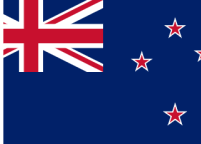Introduction
New Zealand is celebrated for its high quality of life, encompassing diverse landscapes and living environments, from bustling urban centers to tranquil rural areas. This guide provides an in-depth look at the cost of living and housing options, offering insights tailored to different demographics and lifestyle preferences. Notably, the cost of living in New Zealand is, on average, 6.9% lower than in the United States. Additionally, rent in New Zealand is, on average, 38.7% lower than in the United States.
General Cost of Living in New Zealand
General Expenses
- Food: The average monthly grocery bill for a family of four ranges from NZD 1,000 to NZD 1,400.
- Transportation: In major cities, public transport costs around NZD 150 to NZD 200 per month, and petrol costs approximately NZD 2.40 per litre.
- Utilities: The typical monthly costs for a standard household (electricity, heating, cooling, water, garbage) range from NZD 140 to NZD 280.
Healthcare
- Public healthcare is heavily subsidized. Private healthcare insurance costs between NZD 50 and NZD 200 per month, depending on the plan and age group.
Education
- Public schooling is free, requiring only minor contributions for activities. Private schooling fees range from NZD 2,000 to NZD 20,000 per year.
Lifestyle Costs
- On average, dining out, entertainment and sports expenses are between NZD 250 and NZD 500 monthly.
Detailed Cost of Living by Demographic
Student Cost of living in NZ

- Accommodation: University halls of residence cost NZD 200 to NZD 400 per week, often including utilities and some meals. Shared rentals (flatting) range from NZD 150 to NZD 350 per week.
- Food: Campus meal plans or shared cooking typically cost NZD 50 to NZD 100 per week.
- Transportation: Public transport with student discounts costs about NZD 120 per month.
- Entertainment and Miscellaneous: Typically NZD 100 to NZD 200 per month.
- Monthly Total with Rent: NZD 1,120 to NZD 2,320
- Monthly Total without Rent: NZD 320 to NZD 720
Working Bachelors- Cost of Living in NZ

- Accommodation: City centre one-bedroom rentals cost NZD 1,800 to NZD 2,500 per month in Auckland and NZD 1,500 to NZD 2,000 in Wellington.
- Food: Frequent dining out costs NZD 400 to NZD 600 per month.
- Transportation: Owning a car or using public transport averages NZD 200 to NZD 300 per month.
- Entertainment and Lifestyle: Spending on nightlife and cultural events averages NZD 200 to NZD 400 per month.
- Monthly Total with Rent: NZD 2,600 to NZD 3,800
- Monthly Total without Rent: NZD 800 to NZD 1,300
Working Individuals Residing with Families- Cost of Living in NZ

- Accommodation: Three-bedroom home rentals range from NZD 2,000 to NZD 3,000 monthly in Auckland and NZD 1,800 to NZD 2,500 in Wellington.
- Food: Grocery bills for a family vary from NZD 800 to NZD 1,400 per month.
- Education:
- Primary School: Public education is free; private education costs NZD 8,000 to NZD 15,000 annually.
- Secondary School: Public education remains free; private education costs NZD 10,000 to NZD 25,000 annually.
- Senior Secondary School: Costs for public education are still accessible with added extracurricular fees; private education ranges from NZD 15,000 to NZD 30,000 per year.
- Transportation: Expenses for owning one or two cars range from NZD 300 to NZD 500 per month.
- Utilities and Household Expenses: Typically NZD 250 to NZD 400 per month.
- Total with Rent: NZD 3,350 to NZD 5,600
- Total without Rent: NZD 1,350 to NZD 2,600
Comparative Cost of Living Index for Major New Zealand Cities
Here is a comparative index showing the cost of living, rent, and other related expenses in major cities in New Zealand:
| Rank | City | Cost of Living Index | Rent Index | Cost of Living Plus Rent Index | Groceries Index | Restaurant Price Index | Local Purchasing Power Index |
| 1 | Christchurch | 58.1 | 29.3 | 45.5 | 72.7 | 64.5 | 132.6 |
| 2 | Auckland | 65.5 | 31.8 | 50.8 | 74.5 | 61.6 | 133.9 |
| 3 | Wellington | 67.3 | 37.1 | 54.1 | 76.6 | 63.7 | 92.4 |
Housing Options in New Zealand
 Buying a Home
Buying a Home
Cost of Buying Different Housing Types in New Zealand
Auckland
- 2 Bedroom House (2 BHK): Prices generally start around NZD 700,000 and can go up to NZD 1,000,000, depending on location and property condition.
- 3 Bedroom House (3 BHK): Typically ranges from NZD 1,000,000 to NZD 1,400,000.
- 4 Bedroom House (4 BHK): Prices range from NZD 1,200,000 to NZD 1,800,000 or more, particularly in sought-after neighbourhoods.
- Individual House: Large detached homes or those in premium locations can cost between NZD 1,300,000 and over NZD 2,000,000.
Wellington
- 2 Bedroom House (2 BHK): Typically ranges from NZD 600,000 to NZD 850,000.
- 3 Bedroom House (3 BHK): Prices range from NZD 850,000 to NZD 1,200,000.
- 4 Bedroom House (4 BHK): Prices generally range from NZD 1,000,000 to NZD 1,500,000.
- Individual House: Prices for larger or more luxurious homes start around NZD 1,200,000 and can exceed NZD 1,800,000.
Christchurch
- 2 Bedroom House (2 BHK): Prices range from NZD 400,000 to NZD 600,000.
- 3 Bedroom House (3 BHK): Typically ranges from NZD 550,000 to NZD 750,000.
- 4 Bedroom House (4 BHK): Prices range from NZD 650,000 to NZD 900,000.
- Individual House: Detached homes in desirable areas can cost from NZD 800,000 to NZD 1,200,000.
Factors Influencing Purchase Prices
- Location: Proximity to city centres, amenities, good schools, and public transport can significantly increase property values.
- Property Condition: Newly built or recently renovated homes command higher prices than older properties that may need updates.
- Market Trends: Housing prices are influenced by overall market trends, which fluctuate based on economic conditions and interest rates.
Additional Costs When Buying a Home
- Stamp Duty, also Known locally as transfer duty, is a tax paid on the purchase of a property.
- Legal Fees: Hiring a lawyer for property transactions is necessary and typically costs several thousand NZD.
- Building Inspection and Valuation Fees: A building inspection (around NZD 500 to NZD 1,000) and property valuation (approximately NZD 600 to NZD 1,000) are recommended before purchasing.
- Mortgage Setup Costs: These can include application fees and mortgage insurance, especially if borrowing more than 80% of the property’s value.
Renting a Home
Cost of Renting Different Housing Types in New Zealand
Auckland
- 2 Bedroom (2 BHK): Generally ranges from NZD 400 to NZD 650 per week.
- 3 Bedroom (3 BHK): Typically ranges from NZD 550 to NZD 750 per week.
- 4 Bedroom (4 BHK): Often ranges from NZD 650 to NZD 900 per week.
- Individual House: Depending on the area and proximity to the city centre, prices can range from NZD 650 to over NZD 1,200 per week.
Wellington
- 2 Bedroom (2 BHK): Typically ranges from NZD 350 to NZD 600 per week.
- 3 Bedroom (3 BHK): Ranges from NZD 500 to NZD 700 weekly.
- 4 Bedroom (4 BHK): Ranges from NZD 600 to NZD 850 per week.
- Individual House: Prices can range from NZD 600 to NZD 1,000 per week, depending on location and property condition.
Christchurch
- 2 Bedroom (2 BHK): Generally ranges from NZD 300 to NZD 500 per week.
- 3 Bedroom (3 BHK): Typically ranges from NZD 450 to NZD 600 per week.
- 4 Bedroom (4 BHK): Often ranges from NZD 550 to NZD 750 per week.
- Individual House: Prices can range from NZD 500 to NZD 800 per week.
Factors Influencing Rental Prices
- Location: Proximity to city centres, amenities, transport links, and schools significantly affect rental prices.
- Condition and Age of Property: Newer and well-maintained properties tend to be priced higher than older properties needing renovation.
- Market Demand: High demand in major cities often pushes prices up, especially in areas popular with expatriates and professionals.
Additional Costs
When renting in New Zealand, it’s also important to consider additional costs:
- Bond: Typically equivalent to four weeks’ rent, paid upfront as a security deposit.
- Advance Rent: Rent is usually required to be paid in advance, often two weeks’ worth at the start of the tenancy.
- Utilities: While some rentals may include certain utilities, tenants most often need to pay for electricity, water, gas, and internet services separately.
Other Options
- Flatting: Popular in cities, with room rentals ranging from NZD 150 to NZD 350 per week.
Short-term Accommodations: Options like Airbnb are prevalent in tourist areas
Practical Tips for Moving to New Zealand
- Budget Wisely: Use online calculators to estimate living costs based on your lifestyle and family size.
- Understand the Market: Thoroughly research housing options before moving. Websites like TradeMe and RealEstate.co.nz are valuable resources.
- Legal Requirements: Familiarize yourself with tenancy laws and home-purchase regulations on the New Zealand Government’s website.
- Understand local culture: When you move to any new country, you should know the local culture and way of life. Read Auckland Magazine to familiarize yourself with New Zealand and understand its lifestyle, festivals, and traditions, helping you feel more connected and at home.
This guide offers a comprehensive view of what to expect financially when considering a move to New Zealand, tailored to various living situations and personal needs.
About ICL Immigration
ICL Immigration, based in Auckland, is an established licensed immigration adviser and immigration consultant with over 20 years of experience and a remarkable 97% approval rate. We’ve helped over 1,000 immigrants realise their New Zealand settlement dreams.
We specialise in various visa services, including student, residency, work visas and business-related services like employer accreditation. We ensure personalised solutions for individuals and businesses aiming to navigate New Zealand’s immigration landscape successfully.
Reference
Source: https://www.numbeo.com/cost-of-living
Disclaimer: The data points provided above are for informational purposes only and are subject to change based on market conditions. We recommend conducting your own research or consulting with a professional to obtain the most current and applicable information















